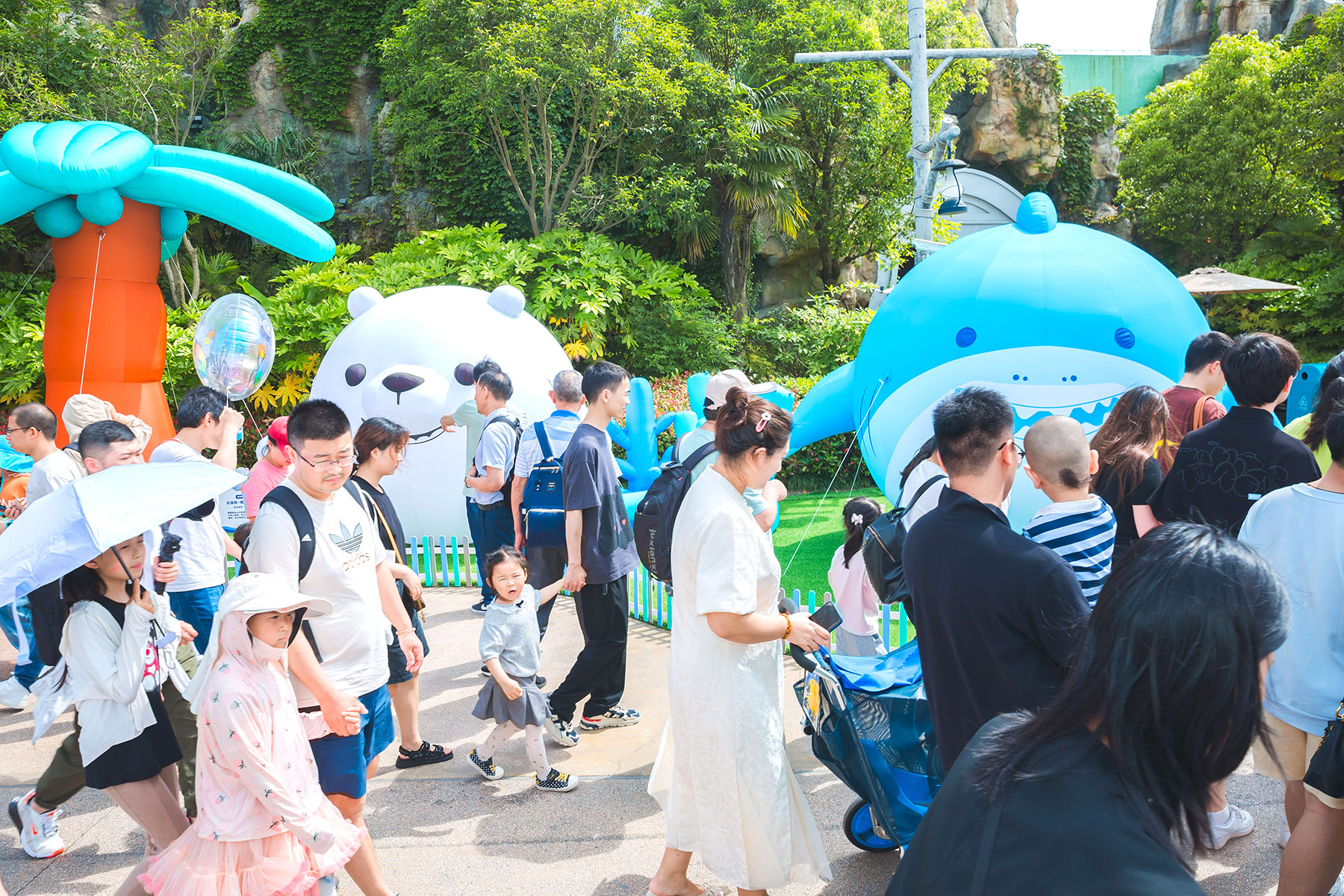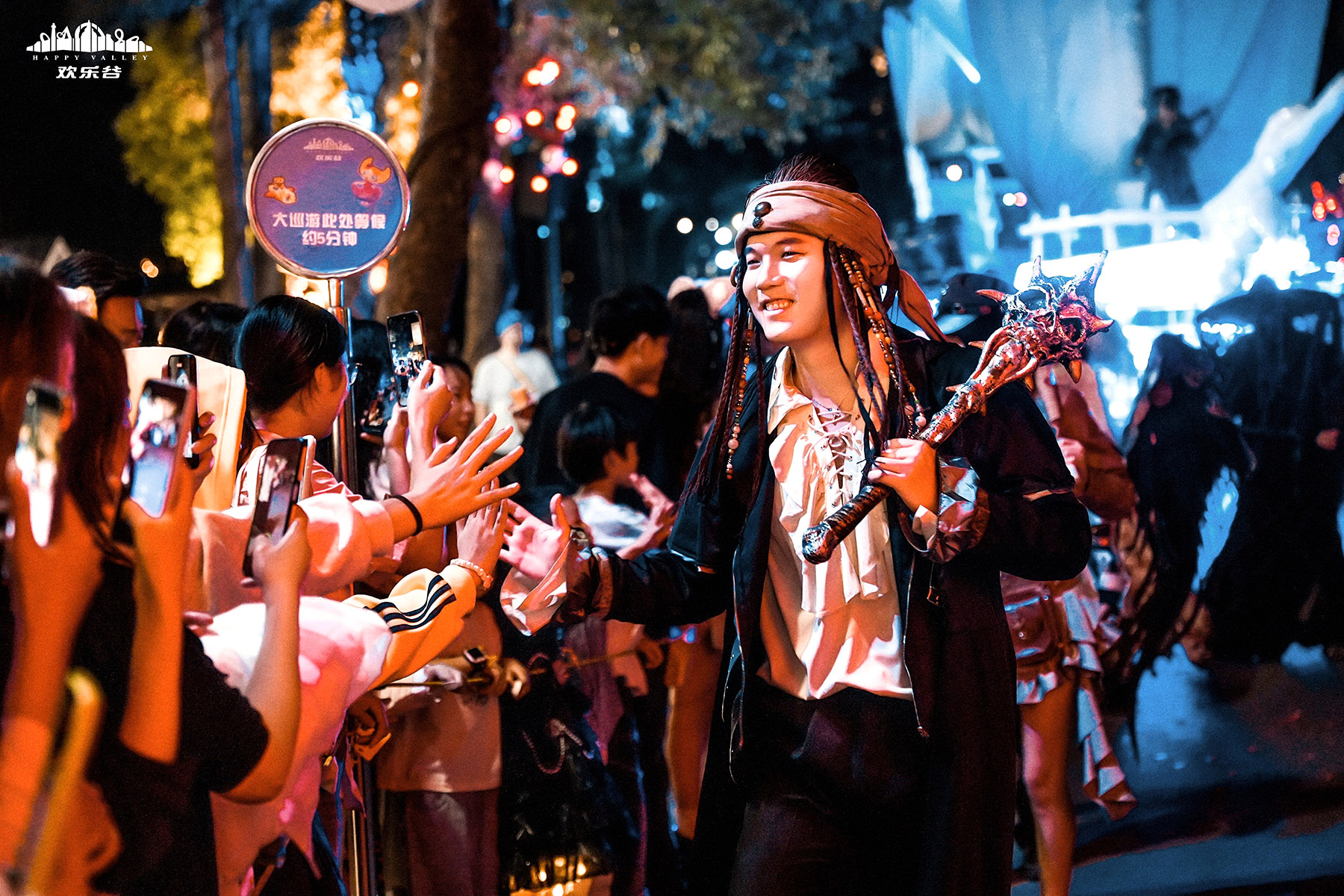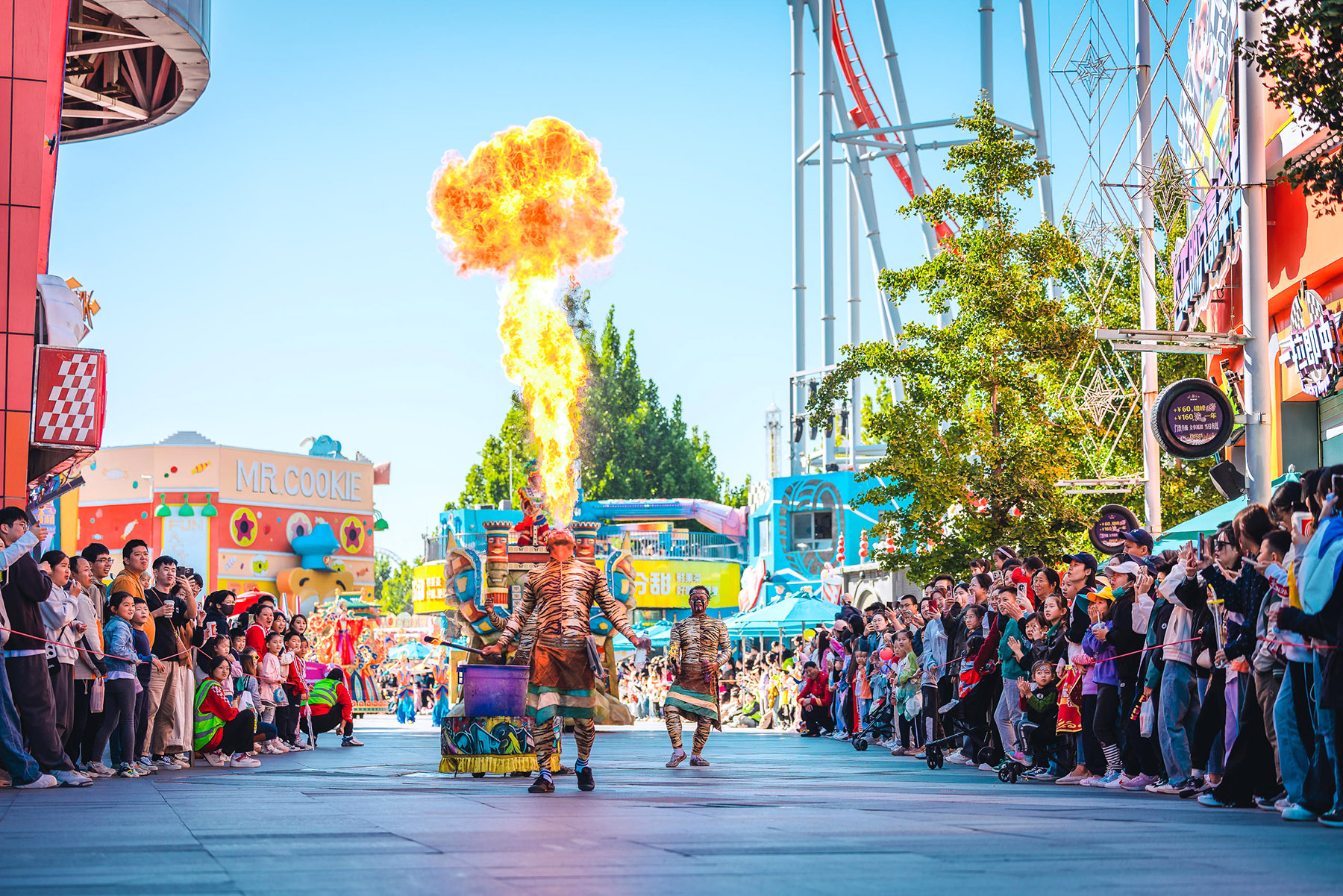Rising appeal and popularity of resorts across age groups driving social and economic changes, Yang Feiyue reports.

Xiao Ru accidentally discovered her parents' new soft spot when she took them with her son to the Universal Beijing Resort earlier this year.
The capital resident said her son had twisted her arm to go to the theme park in the Tongzhou district because he wanted to meet Megatron, a character who has become an internet sensation for his witty responses to visitors.
As her retired parents had never visited a large theme park before, Xiao decided to make the trip a three-generation family experience.
"They're getting older, so there will be fewer opportunities to visit places like this in the future," says the woman in her 40s.
Initially, Xiao thought her parents probably wouldn't enjoy the park much, and that they would be content taking photos and strolling around. But to her surprise, they had a wonderful time.
READ MORE: Tourism's technological transformation
"They didn't miss out on much; they watched the shows, ate the food, and enjoyed a number of attractions."
When she asked her parents if they would go back again, they said yes, and even suggested visiting other theme parks with their grandson.
An increasing number of elderly Chinese, like Xiao's parents, are showing an interest in visiting theme parks, according to the 2024 theme park development report. This was presented at the 8th Development Conference of Theme Park and Resort, hosted by the State-owned Beijing Tourism Group's subsidiary, the Beijing Shouhuan Cultural Tourism Investment Co, and the newspaper Beijing Business Today, in early December.

Since theme parks offer emotional experiences, they are no longer exclusively the preserve of children and young people, especially now that Chinese theme parks are increasingly focusing on meeting the needs of different age groups, and so more elderly visitors are enjoying a variety of experiences. The report surveyed 20 major theme parks and hundreds of seasoned theme park enthusiasts.
The Universal Beijing Resort reports that two 96-year-old grandmothers are among its oldest visitors so far.
According to Shanghai Disney Resort, the number of elderly visitors purchasing one-day and two-day tickets in 2023 increased by about 75 percent over 2019, before the pandemic hit.
The resort notes that elderly guests often wear its famous headbands, sample a variety of park foods, and enjoy the daily parade with their families.
The majority of those surveyed in the report expressed a strong desire to revisit a theme park, and spending time at one has become a way of blowing off steam.
According to research by the Shanghai Disney Resort, most of its annual pass holders visit on average 12 times a year.
For visitors to theme parks like Haichang Ocean Park and Happy Valley, which have locations around the country, the trend has shifted from one-time visits to multiple returns, transitioning toward more in-depth themed experiences, according to the administrations of both parks.
Cheaper prices and exclusive benefits tied to new IPs (intellectual properties including new characters, designs and music), events, and merchandise lie behind the rising popularity of annual pass sales, the report reveals.
Universal Beijing Resort says that it has launched 200,000 entertainment shows, and staged more than 10,000 seasonal events over the past three years.

Some 1,800 performers from 14 countries and regions have participated in the shows, accumulating more than 4,100 performing hours, says Joe Hoskin, general manager at the Universal Beijing Resort, which has also increased its appeal with 1,800 food items and 4,000 themed products.
Hoskin emphasizes that the key to keeping the visitors engaged lies in continuously launching seasonal and themed events based on classic characters.
Haichang Ocean Park stated that while repeat visits to theme parks are influenced by a variety of factors, building an influential IP system is key.
Theme parks must create a sense of identity for visitors, and introduce new activities and products to stimulate repeat visits, according to one employee at Haichang.
Lin Huanjie, director of the Institute for Theme Park Studies in China, believes that the introduction of new IP, activities and products allows theme parks to not only increase the number of visitors but also maintain loyalty.
"On the one hand, this attracts new visitors, and on the other, this draws old customers back," Lin says.
The report also reveals the power of theme parks in upgrading culture and tourism, and in increasing an area's appeal on the county and city levels.
From the urban development perspective, theme parks add to tourism. They have a spatial effect on their locations, driving urban spending outside the parks.
One Singaporean woman, who gave her name as Betty, says she made the Universal Beijing Resort her first stop during her visit to Beijing this year, adding that she had wanted to visit Beijing ever since she heard of its opening.

The report stated that many inbound travelers like Betty are also placing theme park visits high up on their itineraries, before exploring other attractions.
The Universal Beijing Resort, Happy Valley in Beijing, and the Pop Mart theme park, Pop Land, have emerged among the top 10 sites for inbound family travelers this year, according to major travel agency Trip.com Group, on a par with the Great Wall and the Palace Museum in terms of popularity among foreign travelers.
Lin says that 1 yuan ($0.14) of theme park revenue generally drives 3.8 yuan of income for the city, further stimulating 6-15 yuan worth of income in industries and sectors upstream and downstream.
Therefore, every 1 yuan of park revenue can potentially leverage up to 18.8 yuan in additional income, making a significant contribution to the local economy, Lin says.
ALSO READ: Huge crowds greet pandas An An, Ke Ke in public debut
Bai Fan, chair of the Beijing Tourism Group, told the development conference that the theme park economy is emerging as a core driver of the cultural and tourism industry, and the parks should offer more content-rich and human-centric products and services, as travelers are placing greater emphasis on experiential, self-focused tourism and spending.
Xu Zhentao, deputy director of the Beijing Municipal Bureau of Culture and Tourism, says that the future direction of theme parks, the opportunities and challenges they present, and their impact on cities are topics that government agencies, the industry and businesses must carefully consider.
The capital will optimize planning to promote tourism development, flesh out tourist offerings and improve services to elevate visitor experience, driving quality and the growth of tourism, Xu says.
Contact the writer at yangfeiyue@chinadaily.com.cn


